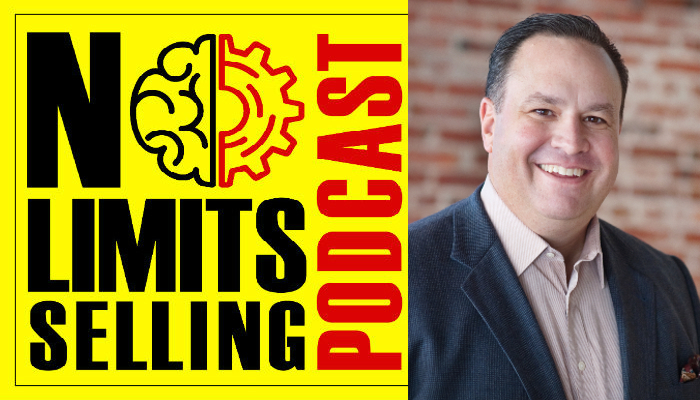Ian Altman on How To Land Appointments
On Episode 101 of The No Limits Selling Podcast, we have Ian Altman, Founder at Same Side Selling Academy. Ian started, sold, and grew his prior companies from zero to over one billion dollars in value. He has since spent years helping companies grow based on research he's done on how clients make decisions.
His modern approach has been instrumental in helping many businesses thrive when their competitors struggle to merely survive.
He’s a co-author of the bestseller, Same Side Selling, now in its second edition. You can read hundreds of his articles on Forbes and Inc. Ian is a member of the Outside Sales Hall of Fame and recognized as one of the world's Top 30 Global Gurus on Sales. His Same Side Selling Academy is rated one of the top 5 Sales Development Programs globally.

Contact Ian:
[EDITOR’S NOTE: This podcast is sponsored by No Limits Selling. It is a fun, fast-paced podcast that delivers hard-fought business advice that you can implement today to improve your sales and performance]
Interested In Our Real Estate Coaching Services? Explore Our Website: Link
Feeling Not Well Today? You Can Use Our Mindset Boosters App To amp Up Your Mood: Link
Find us on Social Media:
LinkedIn | Facebook community | Instagram
Like what do you listen to? Subscribe to our podcast!
Ready to become fearless? We can help you become fearless in 60 days so you accomplish more in your career Schedule A 15 min Call with Umar
Summary
Introduction
The podcast features Ian Altman, a renowned sales expert, and author. He shares his insights on effective sales strategies and how businesses can grow their revenue by focusing on their customers' success.
The Importance of Customer-Centric Selling
Altman emphasizes the importance of a customer-centric approach in sales. He believes that businesses should focus on solving their customers' problems rather than just selling their products or services. This approach not only helps in building trust with the customers but also increases the chances of closing a sale.
The Role of Integrity in Sales
Altman discusses the role of integrity in sales. He suggests that salespeople should always be honest and transparent with their customers. This not only helps in building long-term relationships with the customers but also enhances the reputation of the business.
The Concept of Same Side Selling
Altman introduces the concept of 'Same Side Selling'. This approach encourages salespeople to see the sales process as a puzzle to be solved rather than a battle to be won. It promotes collaboration between the salesperson and the customer, leading to more successful sales outcomes.
The Use of Discovery Questions
Altman highlights the importance of asking discovery questions during the sales process. These questions help in understanding the customers' needs and challenges better. They also provide valuable insights that can be used to tailor the sales pitch according to the customers' requirements.
The Significance of Value-Based Pricing
Altman talks about the significance of value-based pricing. He suggests that businesses should price their products or services based on the value they provide to the customers rather than the cost of production. This strategy not only helps in maximizing profits but also ensures customer satisfaction.
Conclusion
In this insightful podcast, sales expert Ian Altman underscores the importance of a customer-centric approach, integrity, and collaboration in sales. He introduces the concept of 'Same Side Selling', which views sales as a puzzle to solve rather than a battle to win, fostering a more collaborative relationship between the salesperson and the customer. Altman also emphasizes the role of discovery questions in understanding customer needs and the significance of value-based pricing. In essence, Altman advocates for a sales approach that prioritizes understanding customer needs, providing value, and building trust, as these are the cornerstones of successful selling and customer satisfaction.
Questions & Answers
What is the central theme of Ian Altman's podcast?
What is 'Same Side Selling'?
Why does Ian Altman emphasize the importance of discovery questions in sales?
What is value-based pricing, according to Ian Altman?
How does Ian Altman define a successful sales approach?
Why is integrity important in sales, according to Ian Altman?
Don’t miss this opportunity to transform your real estate career with one-on-one coaching. As an experienced real estate coach, I, Umar Hameed, am dedicated to helping you unlock your full potential and achieve your real estate goals. To learn more about who am I and my clients ↓
If you’re ready to take the next step, book an appointment with me today and begin your journey toward success in the real estate industry.
